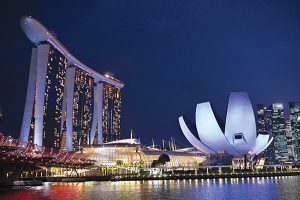Bloomberg
Singapore’s core inflation, the gauge closely-watched by the central bank, rose to a 14-year high, even after the central bank has tightened policy five times since October 2021.
The measure, which excludes private transport and accommodation, rose 5.5% in January from a year earlier, the
fastest pace since November 2008 according to a statement. That compares with a 5.7% median estimate in a Bloomberg survey.
The quickening pace of inflation raises the possibility of the MAS further tightening its exchange rate policy at its mid-April meeting. Unlike most other countries, Singapore has adopted the use of the exchange rate rather than the interest rate as the instrument of monetary policy.
Headline inflation edged up higher to 6.6%, compared with a 7.1% median forecast and 6.5% pace in December, partially offset by lower price increases in items like electricity and private transport.
Food prices came in higher at 8.1%, the highest level since August 2008, with rising prices in staples like chicken and eggs driving up dining-out options to their highest on record.
Finance Minister Lawrence Wong in his budget speech said he expected headline inflation to remain high for the first half of 2023 and announced an additional S$3 billion ($2.2 billion) to help lower-income households cope with the higher cost of living.
 The Gulf Time Newspaper One of the finest business newspapers in the UAE brought to you by our professional writers and editors.
The Gulf Time Newspaper One of the finest business newspapers in the UAE brought to you by our professional writers and editors.
